Climate change: Lapland reindeer gone astray in search for food
- Published
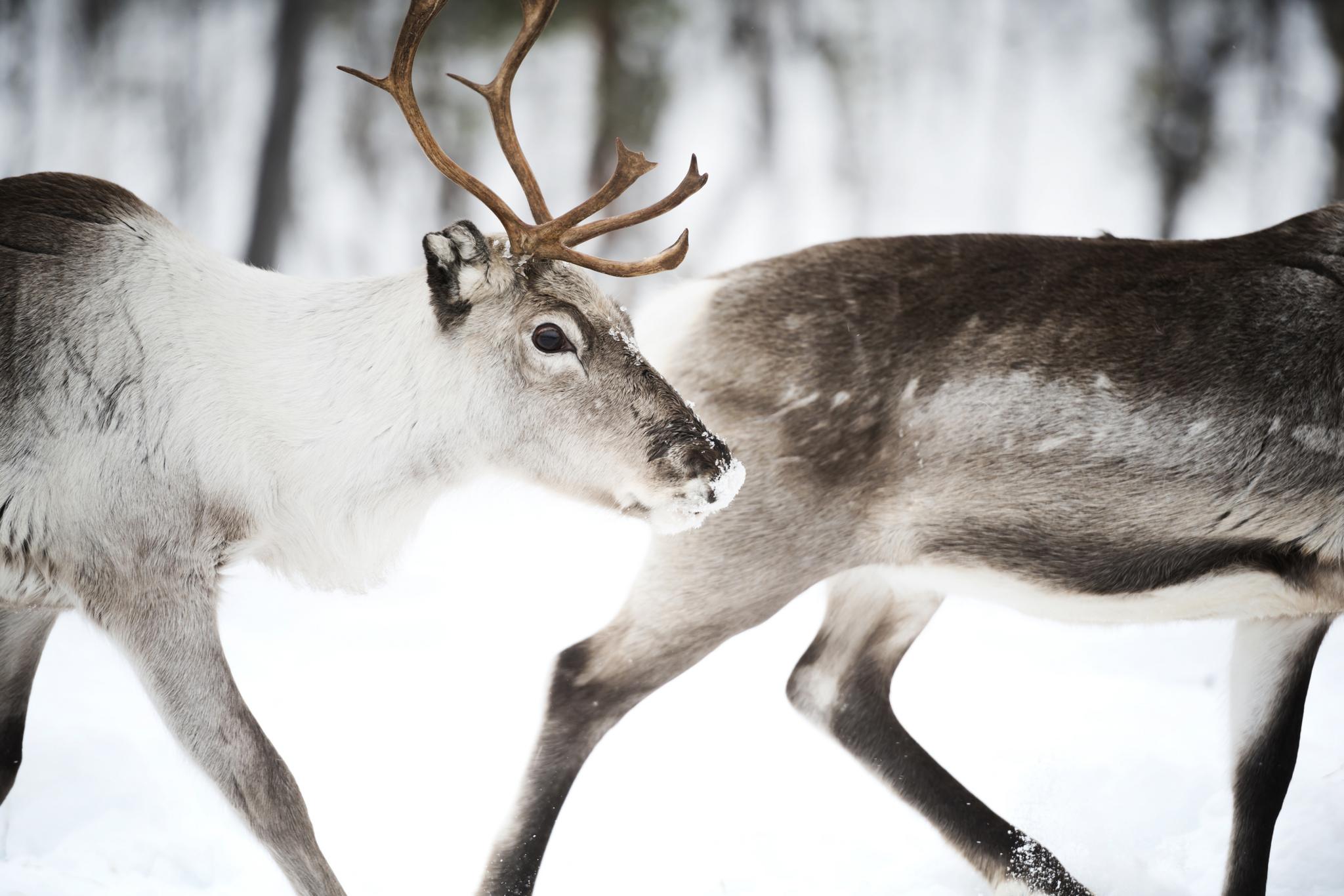
Herders in Lapland are struggling to locate thousands of reindeer that have run away after warm weather left the food they graze on covered by a layer of ice.
Some reindeer have travelled as far as 100km to the south, in search of ice-free lichen they can access under the snow.
Herders are having to track them through the forests of northern Finland and Sweden, some even using helicopters.
Scientists say the Arctic is warming twice as fast as the rest of the world as a result of climate change - though new research suggests that could be an underestimate, external.
The layer of ice is said to form when an early snowfall melts, or is followed by rain, creating wet snow, which then freezes to a hard layer of ice when temperatures drop.
"Reindeer cannot dig the ice as it is hard and so they move away in search of ground where there is just snow that they can remove easily and eat up the lichen below," says Jouko Kumpula, a senior scientist with Finland's Natural Resources Institute.
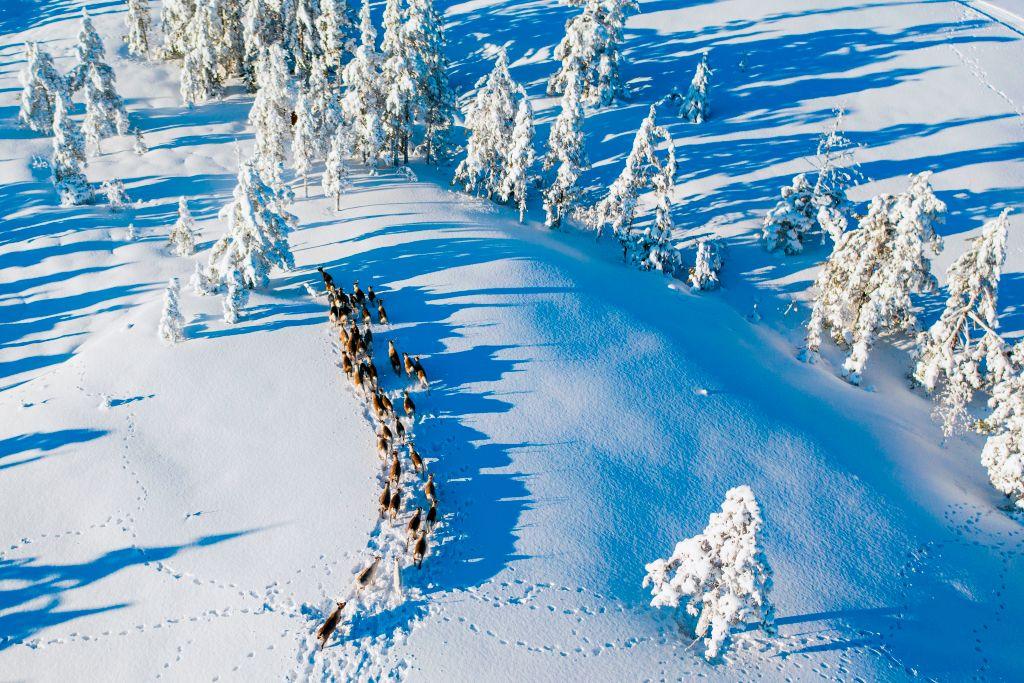
Reindeer herding is the main livelihood for many Sami indigenous people in the Lapland region that includes Arctic regions of Sweden, Finland, Norway, and Russia's Kola Peninsula.
"It has been round-the-clock operation for us - day and night," says Tomas Seva, a 62-year-old herder in north-east Sweden.
"We are driving for hours and hours to locate our reindeers and to herd them back, but it has been very difficult in these wintry conditions. So, we are also using helicopters and this is very unusual - and very expensive too."
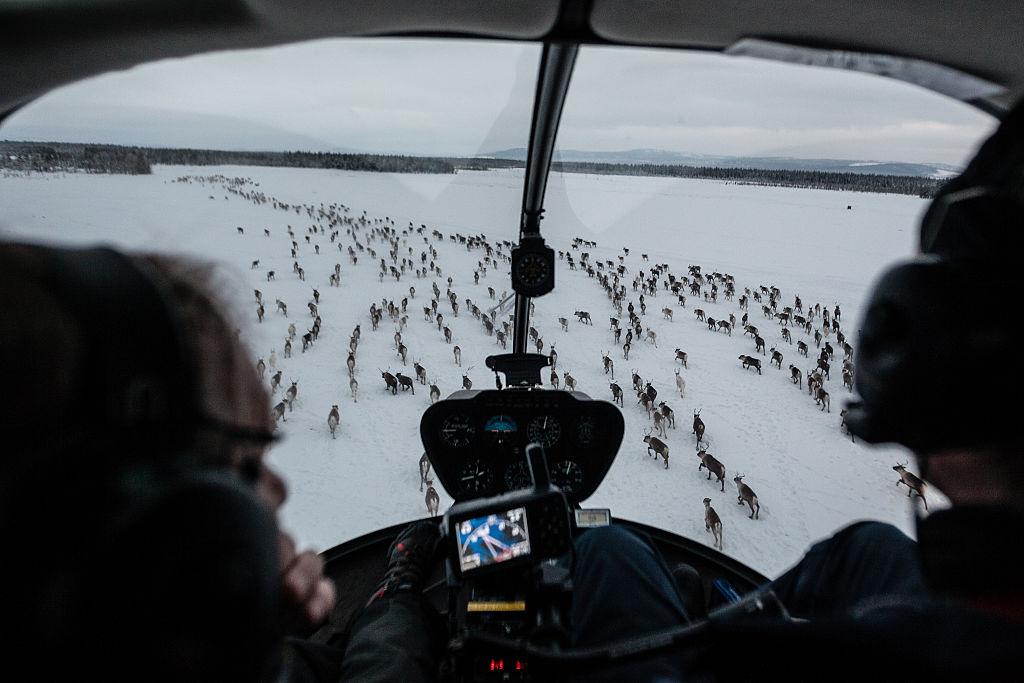
A spotter locates the missing animals then herds them from the air, assisted by snowmobiles on the ground
Tomas Seva says about 8,000 reindeer from his and a nearby village have wandered off in recent days and many of them have travelled unusually long distances.
Sometimes they have mingled with other herds.
"So, separating them from others' herd and bringing them back is a massive challenge, we are really stressed."
The Swedish Reindeer Herders' Association says several districts in the north-east of the country have been affected - and the same problem has also occurred across the border in Finland.
"The farthest our reindeers have gone that I know is around 100km from our district," says Vili Kurki, 28, a herder from Muonio district of Finland.
"Reindeer from the middle part of the district moved to the south, and then in the middle part we saw new reindeer arriving from the north. It was a sort of flow of the animals."
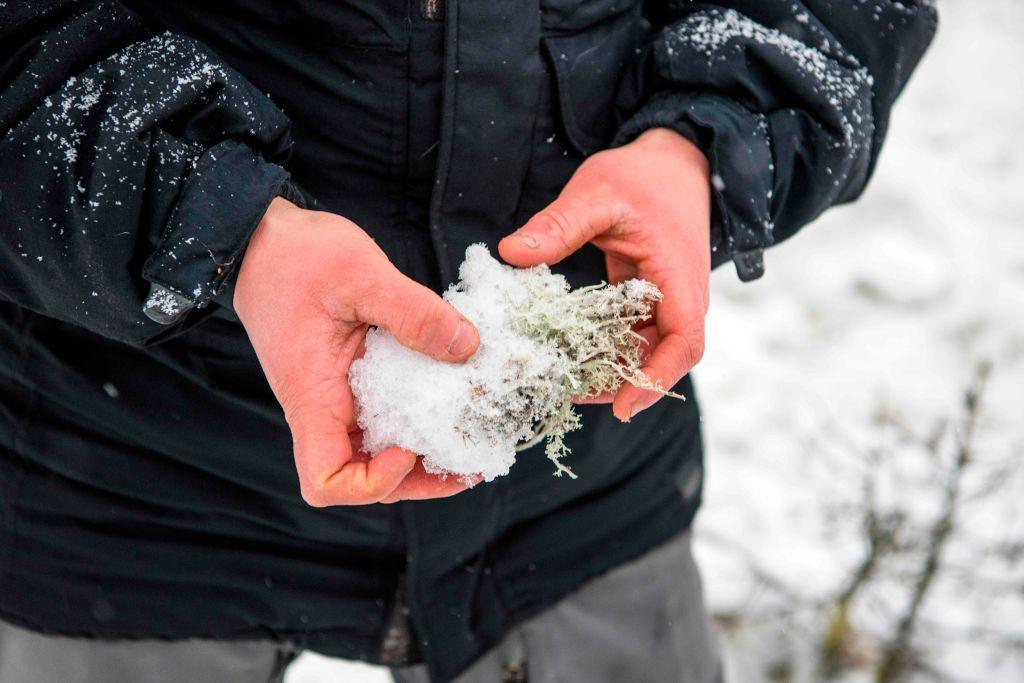
Reindeer eat lichen...

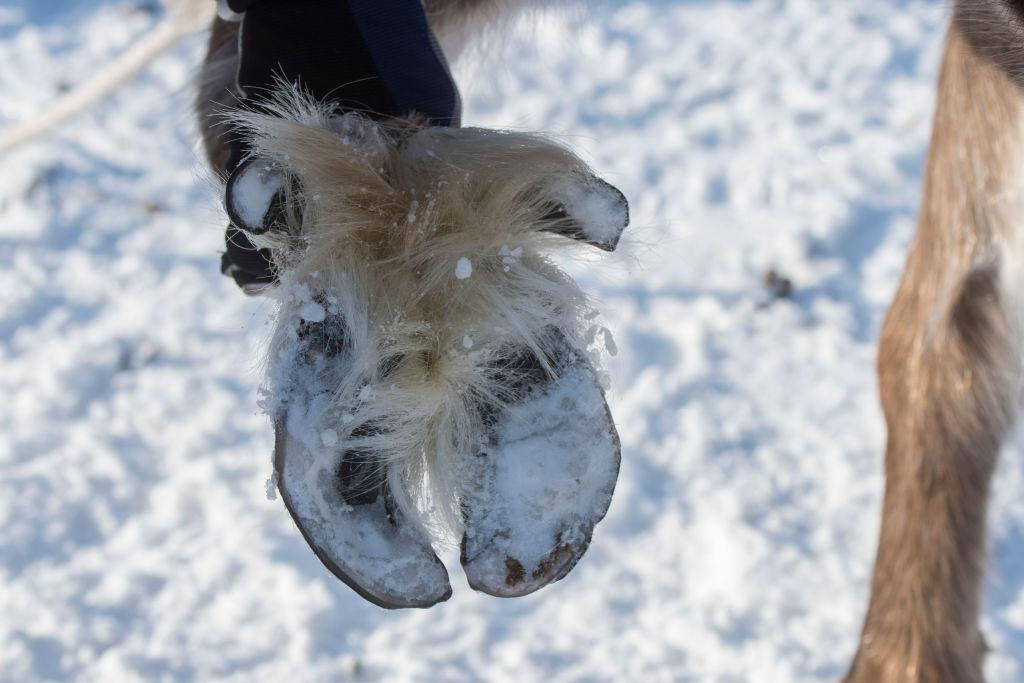
... which they reach by digging holes in the snow with their hooves
Some of the reindeer carry GPS trackers but they don't always work, and even if they do the animal with the tracker may be separated from the rest of the herd.
"So, the most reliable [way] is to look for tracks in the snow," says Anna-Karin Svensson of the Swedish Reindeer Herders' Association. "But wind and deep snow and new snow makes it hard."
Vili Kurki says it will take days or weeks to find all the missing reindeer and get them home.
"All that work means a lot of driving, and when fuel is very expensive, all this costs a lot."
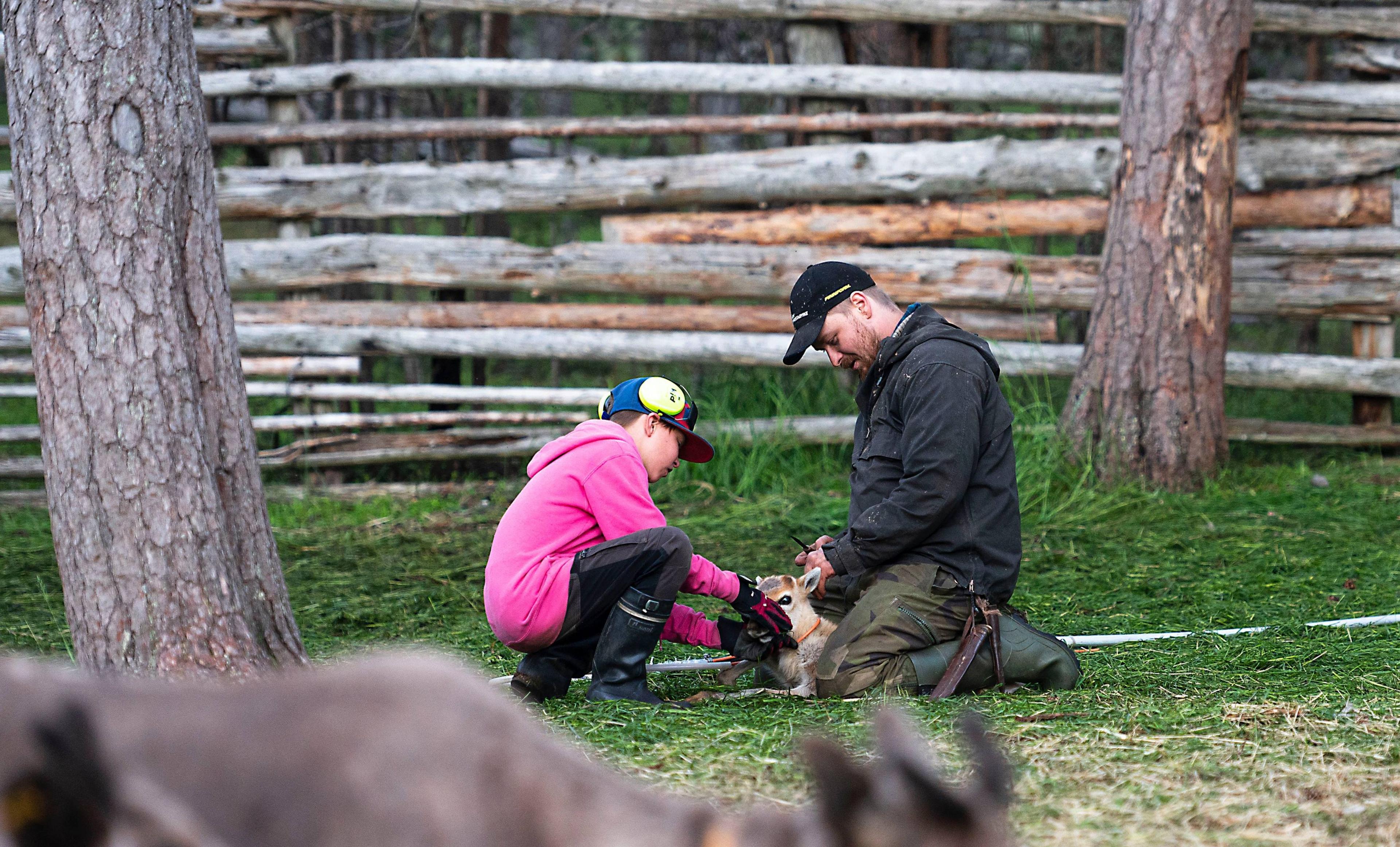
Vili Kurki (right) with his son and a young calf
Scientists say events like this when winter pasture in the Lapland becomes difficult for reindeers to graze have become frequent in recent years.
"Just two years ago there were very difficult and hard winter conditions for reindeer and their herders in all three Nordic countries," says Finnish researcher Jouko Kumpula.
"Usually this kind of winters were earlier experienced once in a 30-year period but it seems that they are probably becoming more and more common due to the ongoing climate change."
The reindeer went missing then too, he says. Some were starving by the time they were found, and suffering from digestive disorders.
Matti Sarkela of the Finnish Reindeer Herders' Association says there is a reason why the animals go south.
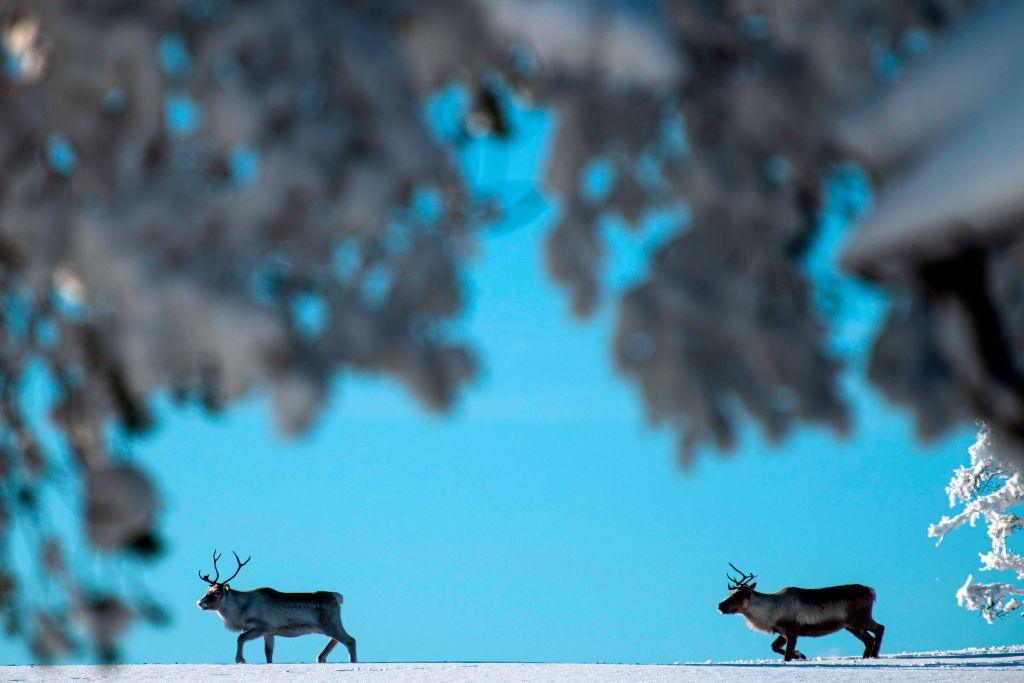
"As the temperature begins to warm up after the early snow, reindeers these days put their nose up to sniff out the direction the warm air is coming from.
"And that is usually from the south - we call it the 'warm weather from the UK' - and reindeers begin to move against that warm wind and so they head south."
Some Lapland herders have begun giving their animals extra food, in the hope of solving the problem.
"They are free-ranging animals so they often try to find their food themselves but the frequency of ice-cover on their winter vegetation is increasing and therefore herders have begun to winter-feed these animals," says Prof Oystein Holand of Norwegian University of Life Sciences.
"They feed them hay and other supplementary food during winter so that animals do not have to wander off for food during winter."